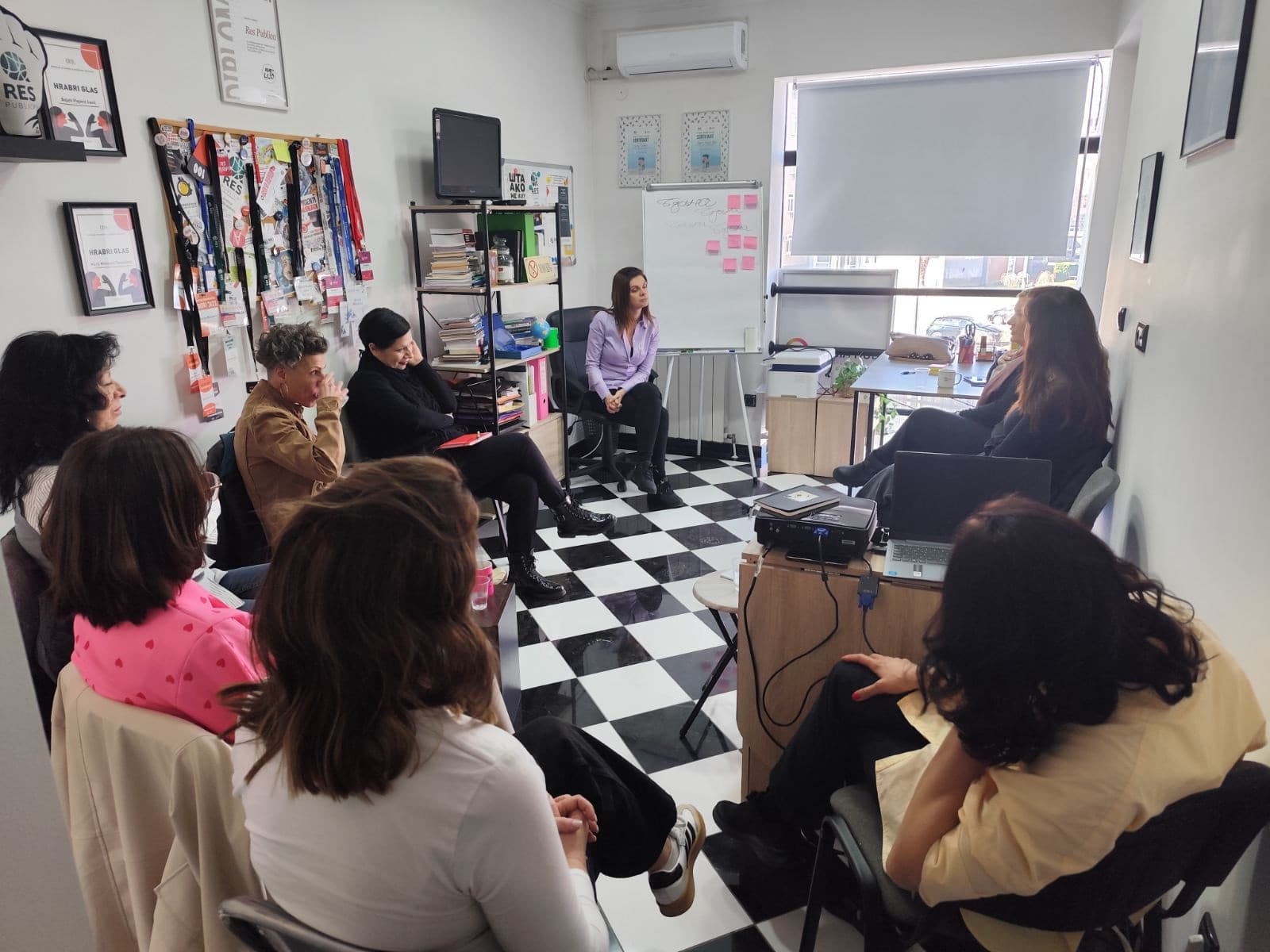Project co-financing in southern Serbia: It's not the quality of the content that matters, but the corrupt system.
In the competitions for project co-financing of media projects in Vranje and other cities and municipalities in southern Serbia, the quality of content does not determine which media will receive funding, but rather a "corrupt system that evaluates projects," believes the majority of representatives from local media in Vranje, Surdulica, and Bujanovac.

Journalists from this part of Serbia, who attended a two-day training for writing media projects in Vranje organized by the Association of Independent Electronic Media (ANEM), assess that the funds from local government competitions are awarded either to those few people or media outlets that are aligned with the authorities.
They highlight the complicated procedures for reporting on projects for which they receive symbolic amounts of funding, often leading them to decide not to apply for the competitions at all. According to their statements, this year's media project co-financing process is the worst so far, as everyone who reported on protests this year has been "shortchanged" – either receiving minimal funds or being rejected altogether.
Dejan Dimić from Vranje News states that there are several layers to the problem.
“The main issue arises when the commission starts making decisions. Clearly, some things happen there that we are not aware of, and we can only speculate, but the outcome is symptomatic. Namely, at the local level in Vranje, only media outlets close to the authorities receive funding – one party television and another television that only reports on the SNS and not on any opposition parties. The rest of us receive either minimal amounts or nothing at all,” explains Dimić.
Mihailo Stanković from InfoVranjska emphasizes that his media outlet no longer applies for local government competitions.
“A large portion of the funds is allocated to television stations, not to internet portals or any other media. Since a politician has made the decision on how the money will be distributed in the media, we do not wish to participate in that. It is necessary for the profession to decide how the money will be allocated, not some politician who happened to be there just because they are a member of the SNS,” states Stanković.
The portal Slobodna reč is also not participating in the competitions, with editor Sanja Petrov noting that the project co-financing process is corrupt and not transparent.
“There are indicators that this process has been rigged for years, that the commission is not consulted, and that the quality of the project is not important, only the party affiliation. Another reason we do not participate is that we do not have much experience in writing these projects, so it seems to us a waste of time and resources to participate in a competition where the winner is already known,” emphasizes Petrov.
The fourth training for local media on writing media projects was held in Vranje, organized by the Association of Independent Electronic Media (ANEM).
The workshop, led by Emil Holcer, was aimed at local media to gain specific knowledge about writing projects of public interest, in accordance with the Law on Public Information and Media, as well as projects for international organizations.
The training was attended by representatives of the media and freelance journalists from Vranje, Surdulica, and Bujanovac. The training also provided an opportunity to exchange experiences regarding participation in this year's project co-financing process, specifically the competitions organized by the Ministry of Information and Telecommunications and local government bodies.
This is one of ten trainings that will be held by the end of the year in cities across Serbia.
The training was organized as part of the project of the Association of Independent Electronic Media “Participatory Monitoring of the Implementation of Project Co-Financing Processes” supported by the Dutch Ministry of Foreign Affairs through the MATRA program. ANEM is solely responsible for the content of the workshop, which does not necessarily reflect the official views of the Kingdom of the Netherlands.
Related Articles

"Protecting Local Media": SRG Meeting Held with Journalists Ahead of Local Elections in Bor on March 29

The fourth training for the safety of female journalists and media workers was held in Kragujevac.



%20%C4%86ao%20Nevena%20VERAN%20MATI%C4%86%20Vlast%20%C5%BEeli%20da%20istrebi%20novinare%20-%20YouTube.png&w=3840&q=75)








